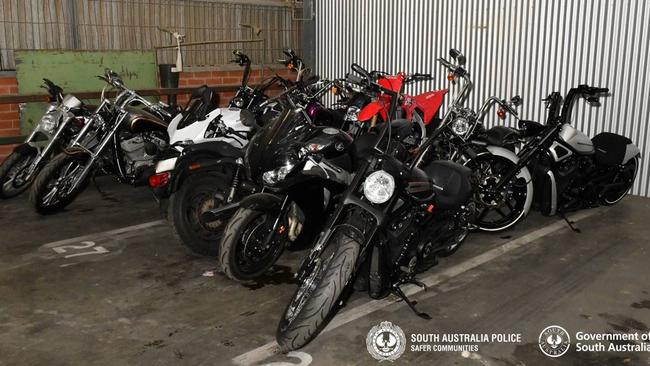District Court rules that police co-operation by drug offenders can lead to frozen assets being returned
Drug kingpins and organised crime figures have been given an extra incentive to co-operate with police with a court ruling they can save their frozen assets.
SA News
Don't miss out on the headlines from SA News. Followed categories will be added to My News.
Drug kingpins and organised criminals have been given an extra incentive to co-operate with police and snitch on fellow dealers after a court ruled they can “double dip” on the rewards for co-operation in an attempt to regain their frozen assets.
Offenders who co-operate with police are furnished with a “Golding Letter” outlining in vague terms how the information they provided assisted in cracking down on organised crime.
This letter is often presented to the court at sentencing to secure a discount on the punishment imposed.
In a District Court judgment published last week a convicted drug offender referred to the under the pseudonym “Davey” argued he should be able to receive credit for co-operation in a bid to save his assets from being forfeited to the Crown.
In her ruling Judge Jane Schammer held that offenders could use the Golding Letter to secure a discount on the civil action against their assets.
Armed with the Criminal Assets Confiscation Act police and prosecutors have been waging a war against the assets of alleged organised crime offenders.

Prosecutors can apply for prescribed drug offenders to automatically have all of their assets, including cars, homes, bank accounts, cryptocurrency and luxury goods, frozen by the court.
Recent high-profile police initiatives including Operation Ironside have netted tens of millions of dollars in assets including Lamborghinis, multimillion-dollar mansions and Harley Davidsons.
Judge Schammer said a crucial consideration in the argument was the vagueness of the Golding Letters.
The letters, which are known colloquially as “letters of comfort”, do not provide precised information of the assistance given to police or how the information was used.
The letters are kept low on detail to protect both the co-operating defendant and the lawyers and court staff who handle the document.

“In order to lessen those risks and to protect both informants and others, the precise nature of the information communicated by an offender to law enforcement agencies is carefully safeguarded and the specific details of such information are not provided to the court,” Judge Schammer said.
Prosecutors argued that “co-operation was not a bottomless well that a defendant can continue to go back to and draw upon” in both criminal and civil actions.
The court ruled that the purpose for excluding assets from confiscation was to provide an incentive to drug offenders to co-operate with police.
Judge Schammer concluded that not only can offenders use the same Golding Letter in criminal and civil hearings, but it is open to the court to restore all of the accused’s assets to them.
More Coverage
Originally published as District Court rules that police co-operation by drug offenders can lead to frozen assets being returned




